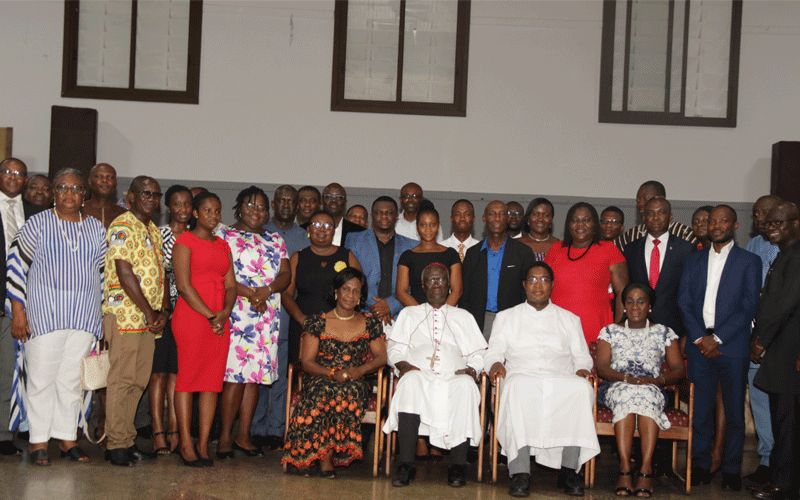Accra, 20 December, 2019 / 3:18 am (ACI Africa).
Over five decades since the conclusion of the Second Vatican Council, which called for an active involvement of the laity in the apostolic life of the Church, Catholic professionals in Ghana’s Accra Archdiocese have been encouraged to heed that call by sharing their expertise within the context of the Church and making visible their presence.
“The time has come for us to sit up and make our presence in the Church count. The time is now when we bring our expertise to bear as we partner (with) our Pastors to build the Church,” the Coordinator of the Catholic Professionals Guilds (CPG) in Ghana, Edward Kwame Ayem said during an award dinner for the professionals held Tuesday, December 17.
While acknowledging that “never before in the history of the Church has the absolutely essential role of the layperson been so dramatically emphasized as it is now,” the health professional decried the lack of involvement of the laity in the work of the Church.
He said, “Among the faithful, there remains a fundamental lack of understanding of the lay vocation and its role in the Church’s mission.”
“For many, there is a notion that the only real vocation in the Church is the ordained or vowed priesthood and religious. They believe the Church is the ordained office and only people in habits or collars are called to serve,” Mr. Akeyam said and emphasized, “The sad reality these days is that most of us have become very laissez faire and hence unresponsive to our duties in the Church.”








